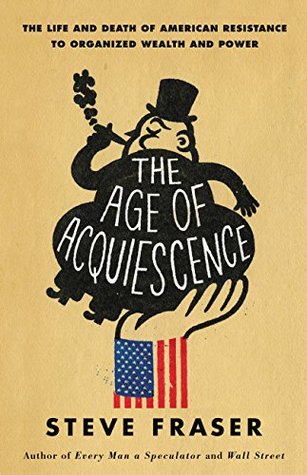More on this book
Kindle Notes & Highlights
by
Steve Fraser
Read between
January 8 - April 30, 2019
Profitability during the second Gilded Age relied instead on cannibalizing the industrial edifice erected during the first, and on exporting the results of that capital liquidation to the four corners of the earth—everywhere
“God has intended the great to be great and the little to be little.… I do not say that a dollar a day is enough to support a workingman,” not “if he insist[s] on smoking and drinking beer.… But the man who cannot live on bread and water is not fit to live.”
This suggests that while the United States is formally democratic and egalitarian, people defer to the hegemony of wealth.
if self-expression and self-development could become vendible commodities, that experience could also become disempowering, mocking the quest for individual authenticity.
If that middle class is shrinking or vanishing, as so many observe, it is because our new order of flexible capitalism is turning it into a proletariat.
The golden rule was revised for the lean-and-mean twenty-first-century free agent nation and goes like this: “I’ll help you because in the future I know you’ll help me.” The great French sociologist Emile Durkheim had a century earlier identified this behavior as the “social pathology of egoism.” Use others as they would use you.
neoliberalism as a way of thinking about the world has been profoundly disempowering precisely because it conveys a techno-determinism about the way things are.


